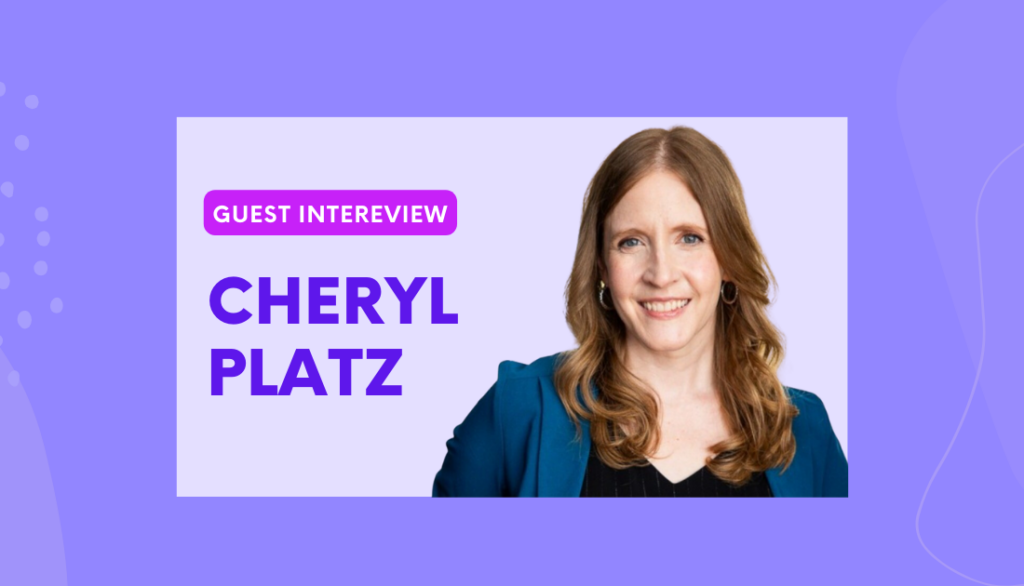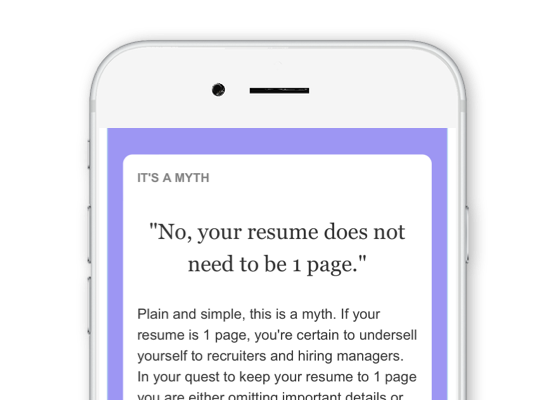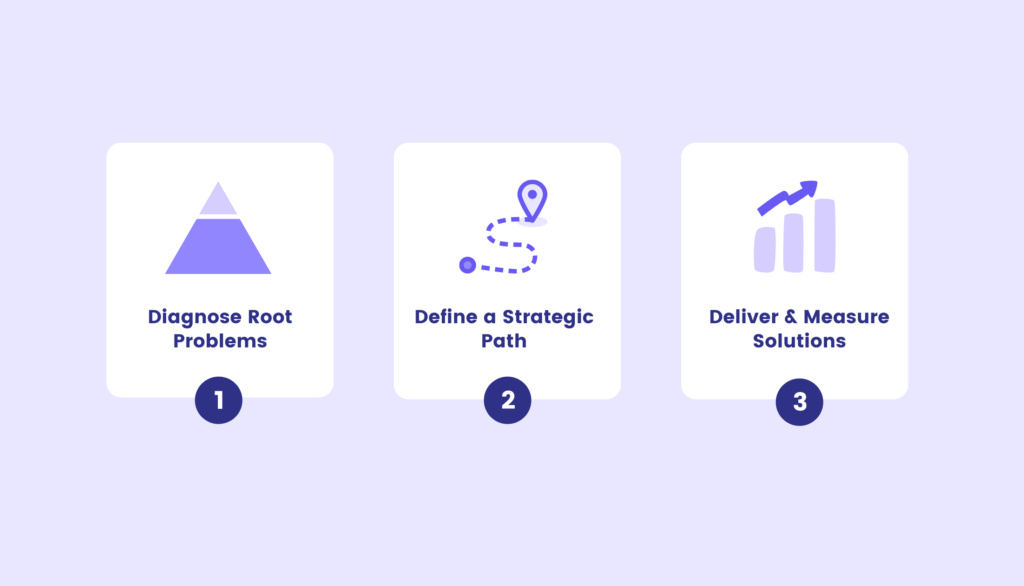Episode 67
Why you should stop complaining on LinkedIn and what to do instead
15 min listen
Episode 65
15 min listen

Listen to the Episode
Episode Summary
Are you unintentionally sabotaging your job search by complaining on LinkedIn? This episode delves into the pitfalls of airing grievances on this professional networking platform, particularly when looking for a new career opportunity. Discover the unseen consequences of complaint-filled LinkedIn posts and how these may create unfavorable first impressions with potential employers.
LinkedIn is getting weirdly personal as many professionals are treat it like a journal or diary where they express frustrations with recruiters, hiring managers, colleagues, and even life situations. Though it’s completely natural to complain and professional and personal circumstances, doing so on a professional social media site can impact the impression that people have about you. If your profile is a consistent barrage of negativity, it gives the perspective that you’re a negative person and will be a negative team member or colleague. Though negativity isn’t always a bad thing, it may not be the first impression you want people to have about you when they look at your LinkedIn profile.
Gain practical advice on how to express job search frustrations privately and learn strategies to showcase your expertise and positivity instead. We discuss the importance of constructive posting, showing thought leadership, and effectively engaging with your industry to stand out to recruiters. If you’re on the hunt for your next big career move and want to make sure your LinkedIn profile isn’t holding you back, this conversation is a must-listen. Tune in for insightful tips that could shift the course of your job search toward success.
Create your dream career, and life
- Book a free Career Strategy Call to learn how we can help you
- Get our free Career Roadmap to help you navigate your career
- Check out Career Strategy Lab, our 3-month career coaching program
Discussion Questions About The Episode
- How does your current online presence on LinkedIn, or other professional platforms, reflect your mindset, values, and approach to your career? What impact could it have on the impressions formed by potential employers or professional connections?
- Reflect on a time when you felt frustrated or dissatisfied in your career. How did you navigate and express these feelings? What alternative strategies could you consider to address these frustrations in a more constructive manner?
- Consider your recent social media or LinkedIn activity. Are there any posts or comments that convey a negative or complaining tone? How might these posts influence the perception others have of you, particularly in a professional context?
- Think about the topics or industry you are interested in professionally. How can you leverage your expertise and knowledge to create engaging and insightful posts on LinkedIn that demonstrate your thought leadership and curiosity in your field?
- How would you incorporate the suggestion of dedicating regular time for thoughtful, industry-related posts on LinkedIn into your routine? What potential benefits do you envision from this practice in terms of career advancement and professional connections?
Episode Notes & Links
Episode Transcript
Sarah Doody [00:00:00]: Hey there. I’m Sarah Doody, host of the Career Strategy Podcast. Many professionals are seeking more impact, flexibility, growth, and let’s face it, getting paid what they’re worth. But how do you unlock this in your career? It starts with strategy. I’m taking you behind the scenes of what’s working for my career coaching clients. You’ll hear strategies and actionable, yet sometimes against the grain, advice for how you can be the CEO of your career and stop dreading Mondays. Ready to level UX your career? Let’s get after it. Hello.
Sarah Doody [00:00:38]: Hello. Welcome to another episode of the Career Strategy Podcast where today we are talking about first impressions on LinkedIn and why LinkedIn is not a place for complaints and airing your grievances especially if you are in the middle of a job search. So let’s dive in. I know today’s topic might be somewhat controversial but I hope by the end of it, you see my perspective and more importantly, the perspective of people who are stumbling across your LinkedIn or intentionally visiting it because you applied for a job at their company and they’re checking out your profile to get to know you. So LinkedIn first impressions and why we need to stop complaining on LinkedIn. Now how did this episode come to be? Great question. I have had this idea for a while and just haven’t really formulated it yet. However, I’ve noticed something on LinkedIn.
Sarah Doody [00:01:49]: It could be just who I follow and the algorithm and things like that but maybe you’ve noticed this as well. There is a lot of complaining going on on LinkedIn about how candidates are treated in the job search, how bad recruiters and hiring managers are at doing their job, not writing high quality job descriptions, you name it. There are just so many complaints being posted on LinkedIn. Now before we go any further, of course, we all know that job descriptions are not always the most well written pieces of literature, you know, ever created. Right? It’s very clear that oftentimes companies are just recycling old job posts and things like that. So, yes, don’t come out with me in the comments. I totally want to acknowledge that. However, the problem that I see is if you are in a job search and you apply to a job and then someone comes and looks at your LinkedIn profile, and in the little section of your profile where it says activity and it has recent posts and comments you’ve made.
Sarah Doody [00:03:13]: If those posts and comments are essentially just bashing recruiters and hiring managers and a lot of negativity, what does that say about you as a candidate? Right? What is the first impression that’s being formed from those posts? And I would argue, are those posts, like, pushing down other potentially high quality posts that you made maybe about your field or what you do or maybe an article you wrote or something like that because you only get one first impression. And when people visit your LinkedIn profile, they are one click away from leaving it. Right? There are so many other things in LinkedIn that they can click once they’re on your profile. You want them to stay on your profile because they are interested. And so if your profile has a lot of negativity and grievance airing and things like that, it’s not sending a really great first impression. Right? And so I say this because I see so many people on LinkedIn posting these types of posts and I worry that the reason maybe they aren’t getting interviews or aren’t getting offers is because of the very posts that they’re making that people see and then invite them to an interview or not. So a couple of tips I have, because I wanna be very practical, and I wanna try and put myself in the shoes of a candidate and a hiring manager. So as a candidate, the job search is frustrating.
Sarah Doody [00:05:05]: I get it. You want to be heard. You want to vent. You want to feel like you’re not alone. You want some support. And I’m saying all of that is valid. And maybe there is an opportunity here to not do that so publicly. A lot of people almost seem to be treating LinkedIn like a journal, and maybe instead, why not get an actual journal, you know, that is not out there for the world to read, for your future employer or the recruiter to read? So think about ways that you can still kinda offload all these feelings and frustrations, but not in such a public way.
Sarah Doody [00:05:52]: Maybe this means journaling. Maybe this means forming a small group of other job seekers that you have met online or that maybe, you know, you know just in your industry or something, and coming together once a week or having a group text or something where you’re able to address these frustrations, but not in such a public way. Like I said, I think it’s really important that we acknowledge these feelings and not hold them inside. However, I think we have to be mindful of the impact of sharing them so publicly on our LinkedIn profiles. So if you are a job seeker, then I hope you can take something actionable away from this and recognize the impact that grievances and complaining and negativity can have on the first impression that people form about you and at the same time find alternatives to express all of that. Now have I complained on LinkedIn? Absolutely. However, it wasn’t related to bashing recruiters and hiring managers or shaming them almost. Right? I’ve definitely posted negative things about product Experience I’ve had and things like that, but if I were doing a job search right now, I would be very carefully curating what I am posting on my LinkedIn profile.
Sarah Doody [00:07:23]: Now what could you be posting on your LinkedIn profile to create a stronger first impression that makes people want to talk to you, to get to know you, to have that screener phone call, or invite you to an interview. So instead of taking time and energy of posting these negative things, think about what are topics you could post about that relate to the job you want. So let’s say you want to get hired at a education tech startup, like master class, although they’re not really a startup anymore, but master class or Udemy or Khan Academy or, you know, so many other companies like that. Right? Something in the education field, let’s say. So if you’ve previously worked in education or maybe you worked in, like, marketing and or sales or design at a company that also was in kinda ed tech, great. You probably have some knowledge of that industry then. So in order to show people your interest and expertise in the field you wanna get hired in, maybe consider writing posts on those topics. And this does not mean that you have to write lengthy, you know, scholarly essays and articles on LinkedIn multiple times a week.
Sarah Doody [00:08:49]: That’s not what I’m saying. It could be as simple as taking 15 minutes once or twice a week to read 1 or 2 articles, and then post that article on your LinkedIn profile, but also add a takeaway. What did you learn from it? Is there something you’re gonna implement on a project you’re working on? Do you disagree with something in the article? Same could apply to a podcast episode you listen to a video. Maybe you used, you know, some software and you had an idea or you ran into a problem or something like that. You could be posting those types of things to your interest and knowledge and curiosity in the industry or type of role that you want to get hired for. And I think you’ll find if you do that, number 1, you will probably see more people engaging, meaning commenting and liking and things like that, on your posts because you’re not just cut and pasting a link and not saying anything about it. Like, when you put your opinion out there, your opinion, your insights, your observations, you’re giving an opportunity for people to kind of respond. If you just post a link to an article with no commentary and and no explanation, people are just like, oh, there’s a link to a podcast or an article or something.
Sarah Doody [00:10:23]: Right? When you include your insight, your agreement, disagreement, whatever, makes it more personal. And people are probably gonna be more likely to respond. Also, if a hiring manager or a recruiter then comes to your profile and you applied to a job at their company or you didn’t and maybe they found you because they were searching on LinkedIn and they see posts like this where you’re putting your thought leadership and ideas out there, they’re going to see someone who is curious, who is a learner, who is thoughtful, insightful, all of these things that form, I would argue, the potential for a stronger first impression than coming to someone’s profile where it’s just a bunch of negative complaining Experience type posts. So to recap here, I really want you to be mindful about what you are posting on LinkedIn. And this is not just for people in a job Sarah, this applies all of the time. But especially true if you are in a job search and you wanna be mindful of what you’re posting to create a positive online presence and first impression so people don’t get deterred from spending time on your profile. So be mindful of what you post, who the readers are of your profile, and what message the things you post might be sending to them and prioritize this. You know, maybe on your calendar, make a little event.
Sarah Doody [00:12:09]: It recurs every Monday, every Friday, every Wednesday, whatever you want. Make it 15 or 20 minutes, and that is your time to commit to reading an article, summarizing a podcast episode you listen to or something. And when you get into this habit of doing this, it will feel less overwhelming and more just a part of your routine. Or if you’re the type of person that likes to batch things and get it all done at once, then maybe make this something you do, you know, the 1st Friday of every month. And you do 4 of these posts and you schedule them. So they go out throughout the month and you don’t even have to think about it. And you can just do all that work in that one little session to write those, you know, for however many posts that you’re gonna schedule, say once a week for the month. Alright.
Sarah Doody [00:13:01]: That is all the time we have for today. I hope you learned something. I hope your mindset has been shifted about LinkedIn and what you do and how it impacts the first impression that people have of you. Have a great rest of your day. And before I go, I wanna remind you that if you are curious about working with my team and I inside our career coaching program called career strategy lab, we would love to chat. The first step to learn about working with us is to just go to career strategy lab.com/apply, And you’ll see all the details there. You can fill out the application. Or if you want, you can book a call with someone from my team and chat through any questions you have.
Sarah Doody [00:13:55]: We actually have, spots available right now with the recording of this. So if you’re interested in learning how we can help you advance your UX career or product career, then check out career strategy lab.com/apply. Alright. Have a great rest of your day, and I’ll see you in the next episode. Thanks for listening to the Career Strategy Podcast. Make sure to follow me, Sarah Doody, on Twitter, Instagram, YouTube, or LinkedIn. If anything in today’s episode resonated with you, I’d love to hear about it. Tag me on social media or send me a DM.
Sarah Doody [00:14:35]: And lastly, if you found this episode helpful, I’d really appreciate it if you could share it with a friend or give us a quick rating on Spotify or review on Apple Podcasts. Catch you later.













